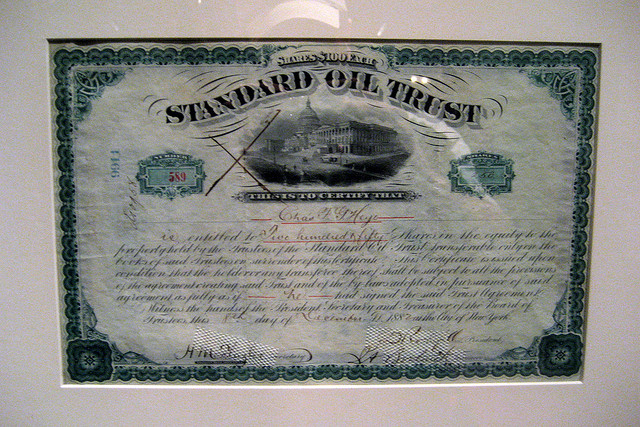
I try not to be an ideologue, and I often fail. One bias of mine is that most macroeconomic policy actions of the government or central bank either don’t help, or merely shift the problem to another place.
Tonight’s issue is the wealth effect, which tends to be favored more by conservatives. ?The wealth effect is the tendency to spend more as the market value of the assets of a person rises. ?I don’t think the wealth effect is zero, but I don’t think can be?very big, and tonight, I will explain why.
Now, imagine that you own some assets and the value of them has grown. ?You’re feeling richer, and you would like to live richer as a consequence. ?How are you going to do it? ?You could:
- Sell some of the assets.
- Borrow against the assets.
- If you control the assets, you could increase the stream of dividends, or pay yourself a higher salary.
- Trade the assets for assets that pay a higher income.
- Do more exotic things, like sell call options — but let’s ignore those possibilities for now. ?Those are just contingent forms of selling.
Let’s take these in order:
Sell Assets
Selling appreciated assets in most cases means incurring a capital gain and paying taxes. ?It can be an effective way of raising your purchasing power on a one-time basis. ?It also means that someone like you, or, one of their representatives, is going to have to part with money so that you can receive cash for your money. ?The net effect for the economy is not likely to be an increase of cash spent on consumption as a result.
As an aside, some people might be averse to selling assets in a big way because they don’t want to consume capital. ?They may not believe that the remainder of their assets will continue to rise in value, and as such might not be willing to spend from realized capital gains. ?That said, many older people *will* have to consume capital in old age, but they aren’t well-enough off to produce a wealth effect — they worry whether their assets will last.
Borrow Against Assets
I think this is dangerous if done in a big way, though I have seen some crackpots advocating that. ?We should have learned from the financial crisis that if borrowing against stable assets like a home in order to spend can result in disaster, it does not make sense to do it against more volatile assets like stocks or a private business. ?Your home is not an ATM. ?That same logic should apply to a brokerage account.
If you do borrow against an appreciated asset in order to spend, that may increase your spending one time, but unless the value of your assets continually increases, you won’t be able to do it forever. ?And, if asset values fall dramatically, you may find that if your debts are greater than your assets, that your spending may go down considerably as you pay back debt to hold onto your assets.
Now, if a lot of people are inverted in their borrowing, an increase in the overall price level of assets could make some?people un-invert and breathe easier, and after a while, spend more from their incomes. ?But the rise there will likely be offset by others whose savings aren’t worth as much being reticent to spend.
Pay Yourself a Greater Dividend or Salary
If you own all of a given asset, this?becomes a question of taking income versus spending on capital expenditures to grow or maintain the business. ?Greater personal spending is offset by lesser business spending. ?Oh, and you have to pay tax on the income you receive. ?If you own part of the business, but still control it, receiving a higher salary disproportionately helps you versus your minority shareholders. ?You might be able to spend more, but it comes out of their pockets.
Trade Your Assets for Assets that Pay a Higher Income
You might want to look at two articles of mine:
First, it’s a simple trade. ?You might have more income to spend, but someone else has less on average. ?Beyond that, it makes more sense to pursue investments that give you the best returns regardless of how much income they pay. ?You can decide on the income you need via dividends, selling bits of the investment, etc.
Income is not an inherent aspect of an asset. ?Within bounds, it is arbitrary, as noted in the two articles to which?I linked. ?As a result, choosing a higher income set of assets may not give you more to spend over time. ?Even if Congress passed a law tomorrow saying that all companies, public and private, have to pay a dividend equal to 3% of market value (or fair value, however determined), it might increase personal taxable income, but many would reinvest it while some would spend. ?As for the corporations, they would have to spend less on capital expenditures, or borrow more to fund them. ?A great increase in spending would be unlikely.
Summary
None of the ways I mentioned for getting more money for spending out of investments is likely to produce a lot of additional spending in aggregate across the economy. ?As a result, I think that the Executive Branch, the Congress, and the Federal Reserve should be cautious of trying to make asset values rise, or encourage more borrowing against assets. ?It will likely not have any significant effect to grow the economy over the intermediate -to-long term.

One thought on “Musings on the Wealth Effect”